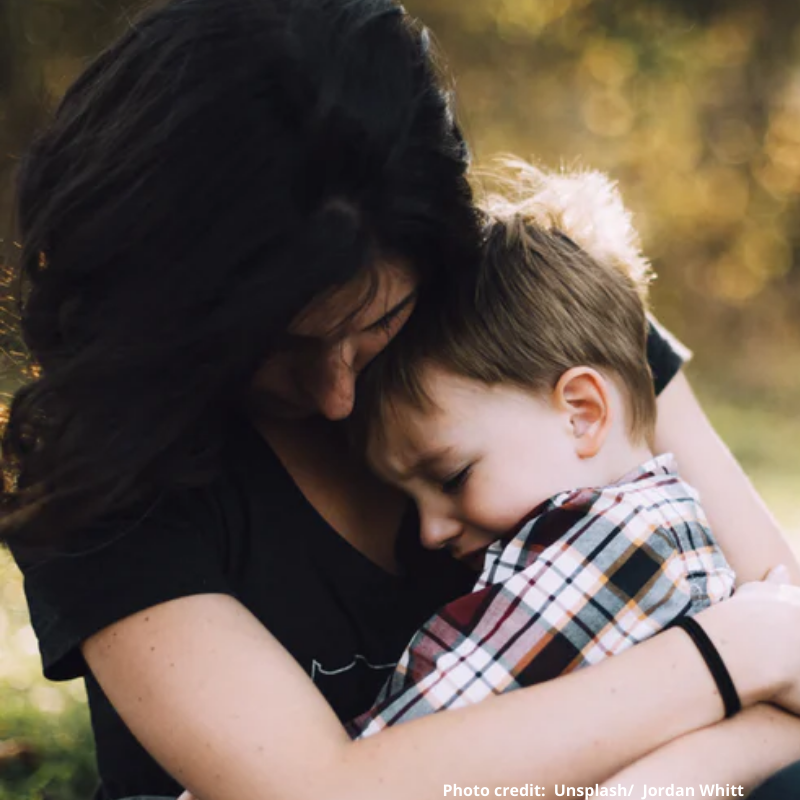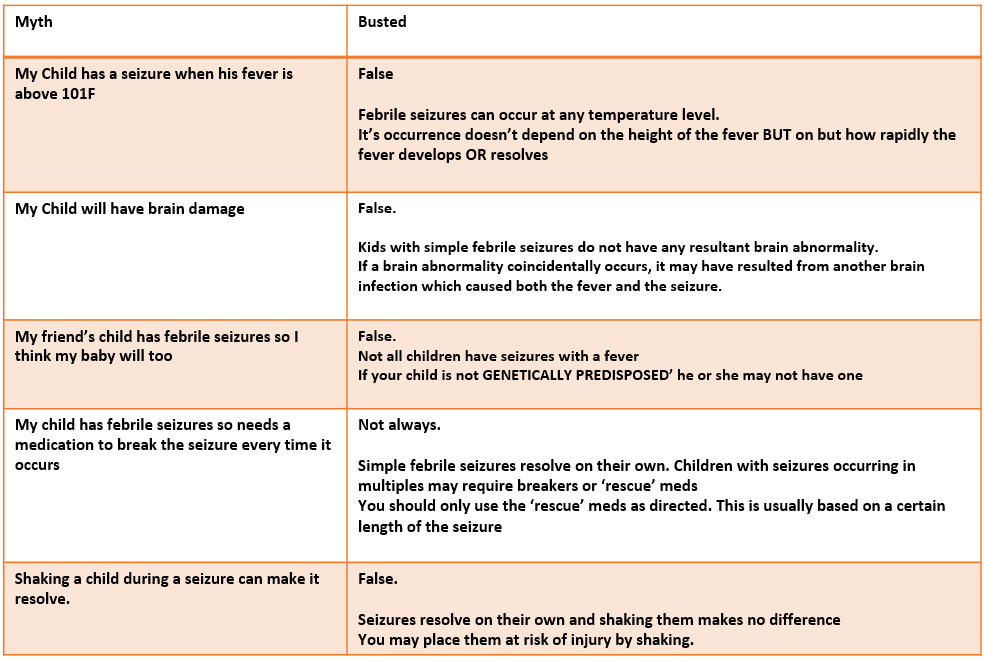Febrile Seizures

Letter to the parent whose child had a febrile convulsion
Dear E,
I tried my best to relieve your fears today, but I understand the feelings of a parent when their child has an abnormal movement or becomes unconscious. I am a mother too and even though none of my children had febrile seizures, I witnessed my sister have it severally as a child. Trust me when I say she grew up into a beautiful, well accomplished pharmacist and on her journey to becoming a global health specialist.
Even though you are worried about your child’s febrile seizures I thought you might want to know some of these things about febrile seizures:
- They are very common in children between the ages of months 6 and 5 years.
- They run in families. If you had it as a child, your child may have it. This doesn’t mean they definitely will
- Most children recover completely and act like their normal selves. In some scenarios, they may be uncomfortable from the fevers or other illnesses which caused the fever that made them spike
- Children do not have any brain abnormality after simple febrile seizures
- Even though the chances of repeat seizures are high, they rarely still affect your child’s brain development
- Febrile seizures can recur. Depending on your child’s age, there is a 30-50% chance of having another febrile seizure
Types of Febrile Seizures
There are two main types the doctor might discuss with you based on how your child manifested
| Type | Simple Febrile Seizure | Complex Febrile Seizure |
| Duration | Last between a few secs to 15 mins. | May last longer than 15 minutes |
| Features | Involves generalized shaking of the whole body |
May |
|
have be localized to one side of the body OR It may start on one side and become generalized |
||
| Recurrence |
Doesn’t recur within 24 hours- Meaning your child with have only 1 seizure occurs in a 24-hour period |
Multiple seizures can occur within a 24- hour period and may have some occurring close to each other |
| Recovery | Child will usually return to baseline normal self | Child may or may not return to normal self,especially after multiple seizures |
Cause
You were understandably asking for a cause of your child’s seizure. Here’s what we know:
- Febrile Seizures are caused by abnormal electrical activity in the nerve cells of the brain that is brought on by having a fever. But the exact reason why that happens is unclear
- There is a genetic predisposition- meaning some kids are more prone to it than others. If you had it as a child, your child or children are at higher risk of having them
- It happens with the fast rise in temperature (fever) of your child and not really the how high the fever is.
Hospital evaluation
As much as you may want all testing and brain CT to be done for your child when a febrile seizure occurs, these are rarely needed
A good history from you of what is going on and a thorough examination of your child helps detemine the source of the fever.
The main aim is always to find the source of fever and treat if needed. It may be a viral infection, like a cold (which isn’t usually treated) or might be a bacterial infection, like an ear infection, pneumonia, urinary tract infection and so on (which usually needs to be treated with an antibiotics).
In some cases, if your child looks sicker or a physician evaluating your child is concerned, they may perform some testing. Some tests may include:
- Blood counts and culture – to determine if there’s a serious blood infection and what ‘bug’ is responsible
- Blood Electrolytes – to check if there are any chemical imbalances. This might be considered if your child has had a history of vomiting or diarrhea
- Lumbar Puncture (or Spinal tap) – to rule out meningitis or concerns of other brain infections. This also depends on your child’s age.
- Brain Imaging (CT or MRI): Rarely obtained, unless your child’s examination is abnormal there is concern for brain infection
- EEG – to look at the brain waves. This is not done in the emergency room. If your child needs this, you may be referred by your family pediatrician to obtain it in clinic OR if your child is sick enough to be admitted, it may be done by the neurologist
What to do if your child has a Seizure at home
Here’s what you should do if your child seizes again at home:
- Make sure the environment is safe
- Make sure your child doesn’t have anything in their mouth AND Do not put anything in their mouth
- Keep them on their side
- Do not continue to shake them or call their names, if it is a true seizure they will not respond until it resolves on its own or with meds
- Do not rub oil or other herbal medicines on their face
- If your child was given a medication to break the seizures, be sure to give it as directed
- Give fever medications – acetaminophen (Tylenol) or ibuprofen when your child is awake enough, to help them feel better
- If your child received a ‘rescue medication’, be sure to store it in a place you will remember should your child need it
All illnesses and emergencies in children are scary but I mean it when I said ‘Simple febrile seizures’ – the type your son had was the ‘good type’ of seizures to have. Most children outgrow it by the age of 5 years.
DO NOT FORGET TO FOLLOW UP WITH YOUR FAMILY PEDIATRICIAN FOR RECHECK AS SOON AS POSSIBLE
Now, On to a Myth Busting session
Common Myths around febrile seizures

Remember: these are for education purposes only and not treatment. Be sure to read the disclaimer. Speak to your doctor.

0 Comments